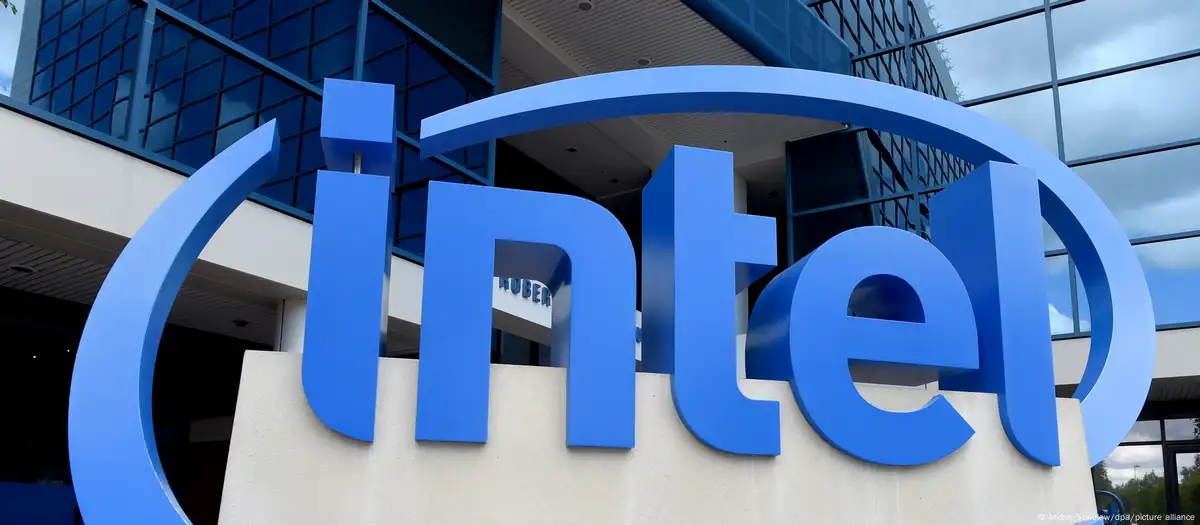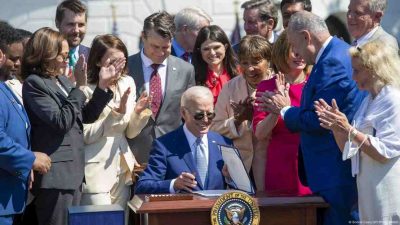
Trump government bought 10% of the shares of the chip manufacturer, which is in crisis. Some see necessary measure against China, but critics warn of the risk of crop capitalism.
The White House confirmed that Donald Trump government has acquired a 10% stake in the Intel American chip manufacturer, for the value of $ 8.9 billion ($ 48.5 billion).
“This historical agreement strengthens US leadership in semiconductors, which will stimulate the growth of our economy and help ensure America’s technological advantage,” says US Secretary Howard Lutnick on Friday (08/22).
Although it is unusual for the US government to acquire a share of a company as large as Intel, this is aligned with Trump’s tendency to intervene in the market during its second term.
Nvidia and AMD chip manufacturers also agreed this month to pay 15% of their sales revenue in the US government.
Another example was the recent sale of US Steel American steelmaker to Japanese Nippon Steel, in an agreement that guaranteed the US government a Golden Share, which gives us ample veto power on corporate decisions from US Steel and the right to appoint a board member.
There was also the announcement in July that the US government would become the largest shareholder of the only rare land mine in operation in the US, owned by MP Materials.
More than a company?
“Trump management is actually adopting a broad view of what is possible in terms of US government instructions in the private sector and forcing the limits a lot,” DW Geoffrey Gertz, a senior researcher at the center for a new Washington -based American security.
It describes recent measures as “unusual,” and distinguishes between the policies of previous governments to stimulate whole sectors and Trump’s most personal and directed approach. “They are closing punctual agreements with individual companies,” he says. “This is a very different approach to establishing industrial policy standards or guidelines for the entire industry.”
Trump even asked for a resignation from the Intel CEO, but changed Tom after the agreement on shareholding | Kevin Lamarque/Reuters
However, there is a lot of support for Trump’s approach, especially when it comes to sectors considered strategically important in rivalry between the US and China, such as semiconductors and rare lands.
SUJAI SHIVAKUMAR, director of the program renewing American innovation at the Center for Strategic and International Studies in Washington, says the semiconductor industry does not compete in “equal conditions”, considering the enormous state support provided in countries such as China and others.
“Intel is more than just a company, and I think the decision to invest must be applauded,” he told DW. “It is time to understand that this type of industrial policy is now the norm in advanced economies and that governments are providing this form of broad support,” he says. “If we cling to this myth of a purely pure market here in the US, we risk losing ground in one of the most strategic sectors of the century.”
Gertz points out that it is not “intrinsically wrong” the government to invest in Intel. “I think there are strategic sectors and there are reasons for an active industrial policy, especially when there are repercussions on national security.”
The importance of chips
Both Joe Biden and Trump governments have aimed to increase US ability to make advanced chips needed for virtually every aspect of modern high -tech industry.
The Biden Dynamic Government Chips ACT in 2022, a law that received bipartisan support. The standard destines federal support and generous subsidies for companies such as Intel, Taiwan Semiconductor Manufacturing Corporation (TSMC) and Samsung to increase production on American soil.
Given that Samsung is from South Korea and TSMC is from Taiwan, Intel represents a more obvious perspective in terms of production in the US.
However, Intel has been associated with problems in recent years. She has struggled to compete with TSMC in the manufacture of the most advanced semiconductors for external customers and has not won a slice of the Nvidia, artificial intelligence data chips (IA). Their recipes have been failed and the price of their shares was falling-after the announcement of the White House, they rose more than 6% on Friday.
 Biden signs the chips Act in 2022, which offered subsidies to US -investing chip manufacturers | Bonnie Cash/UPI Photo/Imago
Biden signs the chips Act in 2022, which offered subsidies to US -investing chip manufacturers | Bonnie Cash/UPI Photo/Imago
Trump, who criticizes the Act chips, even asked for the resignation of Intel CEO Lip-BU TAN in early August, but changed its approach after meeting with him and the government’s proposal acquires shares of the company to gain strength.
According to an Intel statement, US government funds to buy shares will partially come from subsidies that were provided by Chips ACT and other sources.
For Sujai Shivakumar, Intel is the only US -based company with real chances of recovering American dominance in the manufacture of advanced chips. He evaluates that the company’s potential justifies the intervention of the US government.
“It needs commercial demand so that its products are viable, but it needs these options to ensure demand,” he says. “Therefore, she is stuck in this vicious cycle. And unless there is a strong sign that she can really find an attraction to get out of this situation, she will continue to spin in false.”
Risks and Application
But the agreement also expressed some concerns about the increasingly robust approach of the Trump government regarding direct intervention in US companies.
 Intel Factory at Arizona – Company is struggling to compete with other big sector | Intel Corporation
Intel Factory at Arizona – Company is struggling to compete with other big sector | Intel Corporation
“There is a risk of crop capitalism,” says Geoffrey Gertz. “You can reach a situation where you are harming competition, damaging long -term innovation by having a few favored companies that can be a little lazy because they know they are protected by the state.”
For Sujai Shivakumar, the secret is to balance genuine strategic issues and market forces. “It’s not that we should keep a blank check,” he says. “We can’t make it all the market load. There needs to be any balance, an intelligent industrial policy that can help a company restore the confidence of its customers, investors and suppliers.”
Originally published by DW on 08/25/2025
By Arthur Sullivan
Source: https://www.ocafezinho.com/2025/08/25/eua-socio-da-intel-boa-estrategia-ou-intervencao-indevida/

